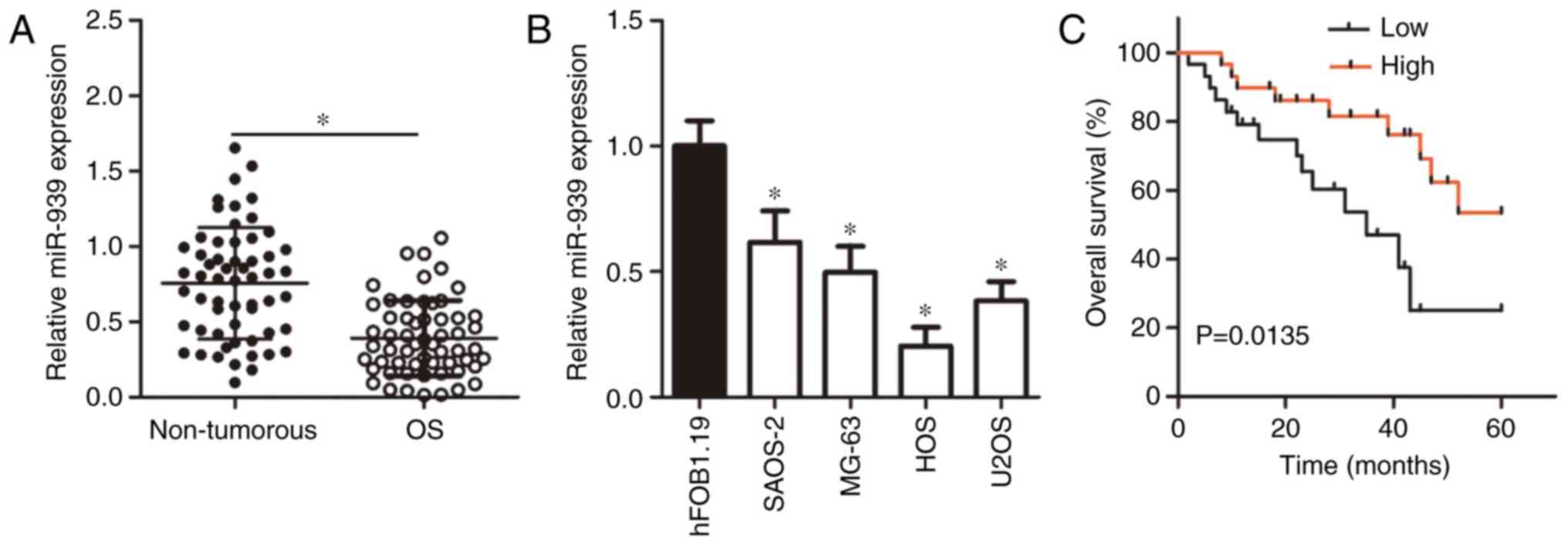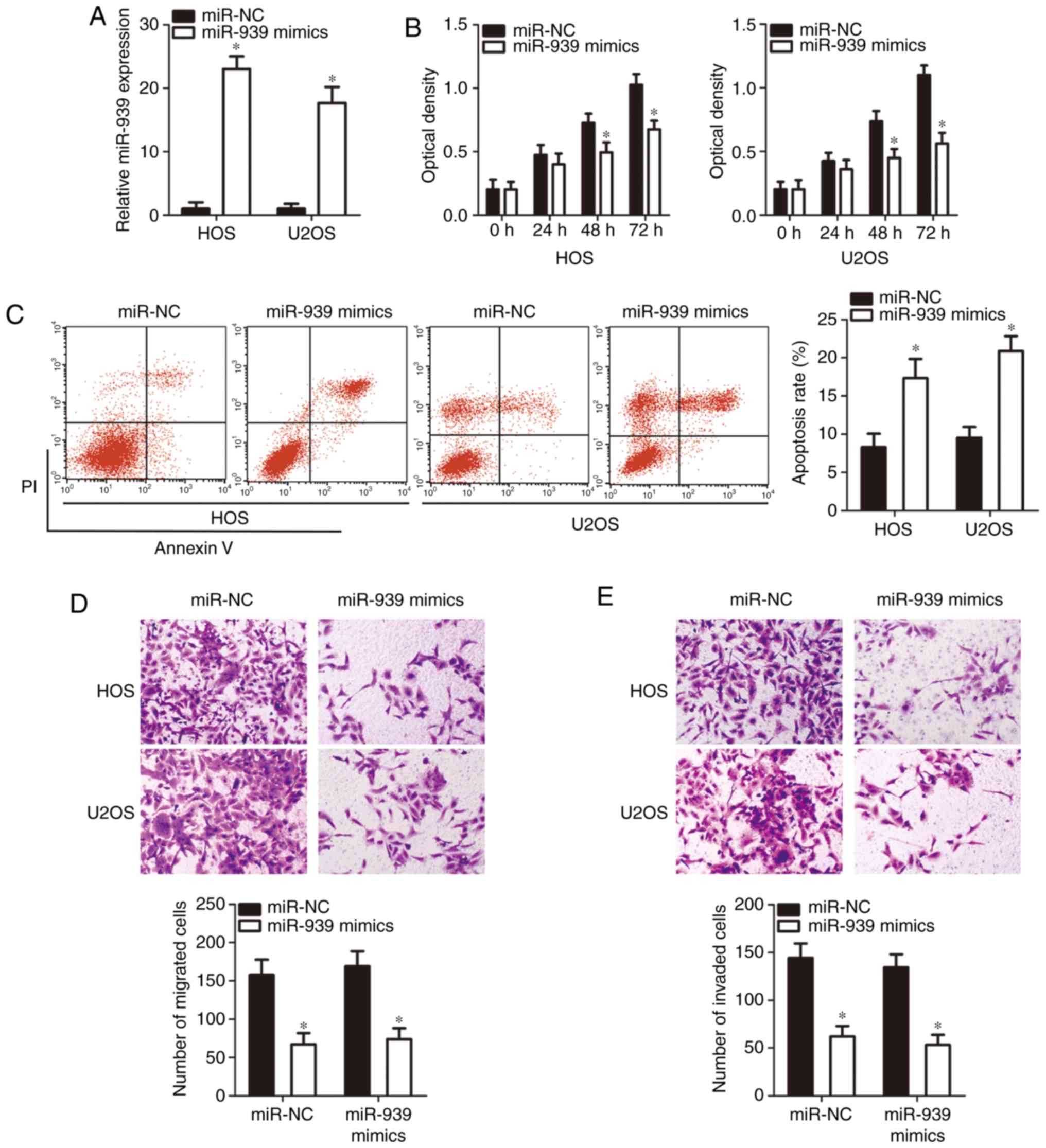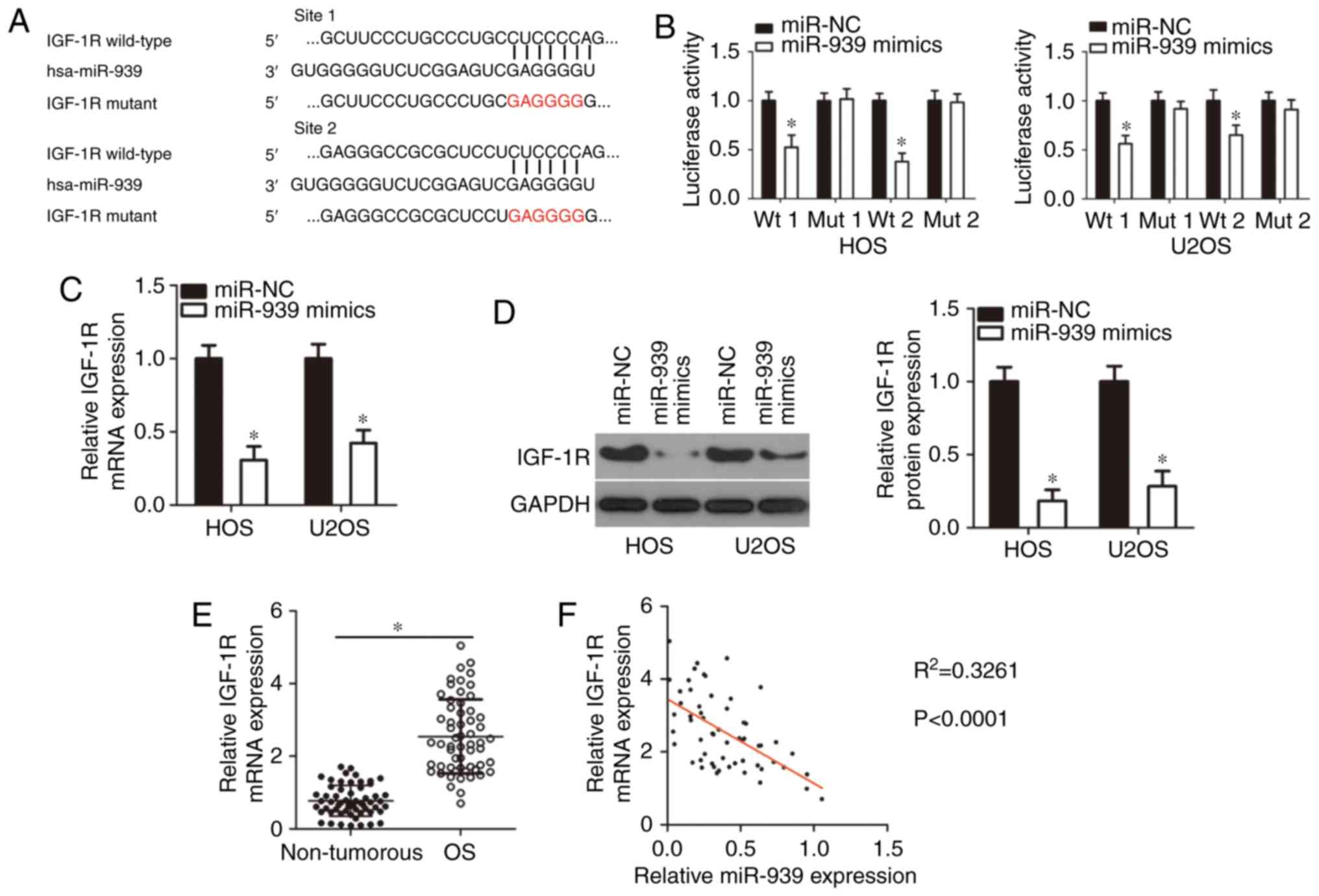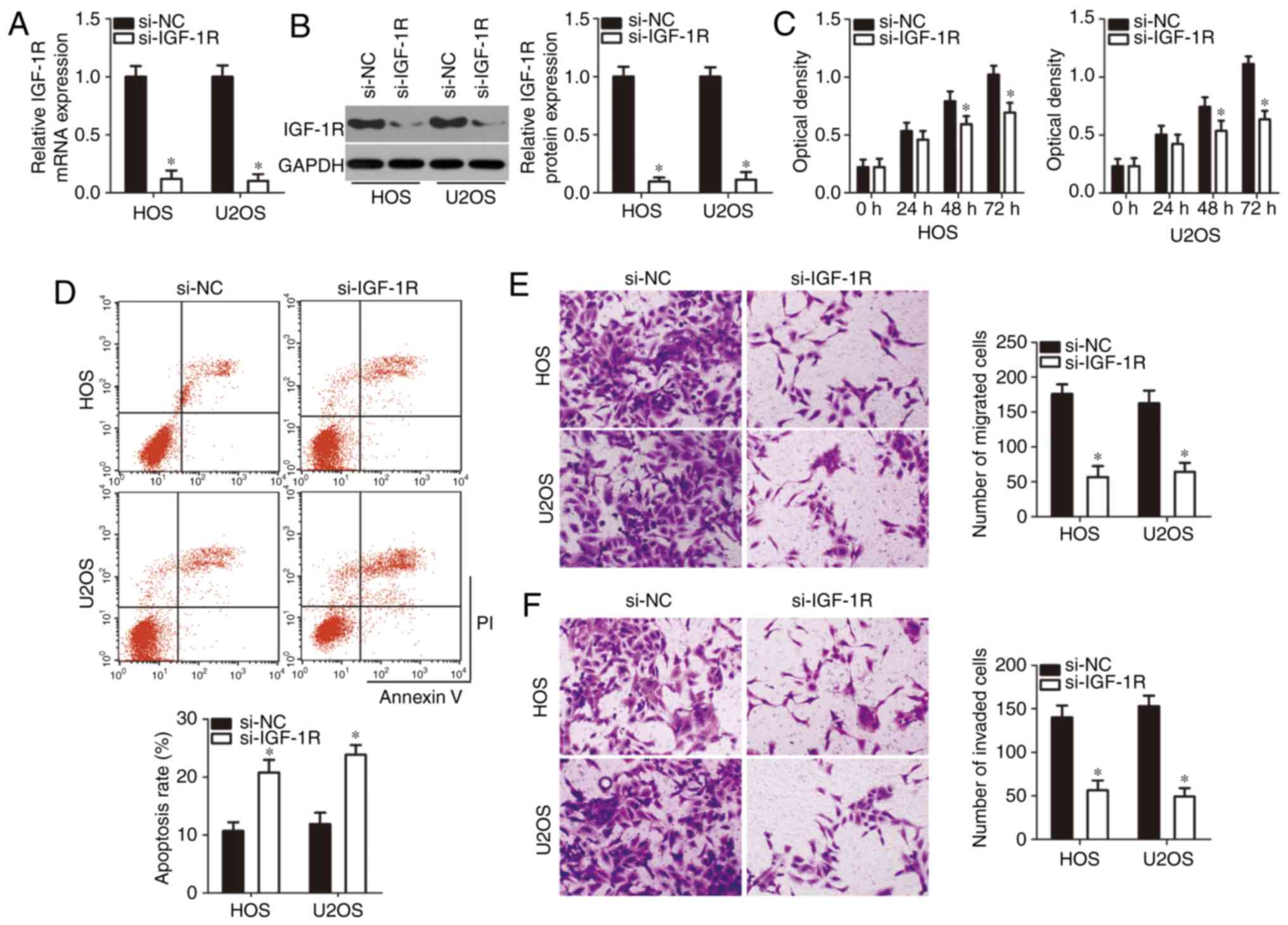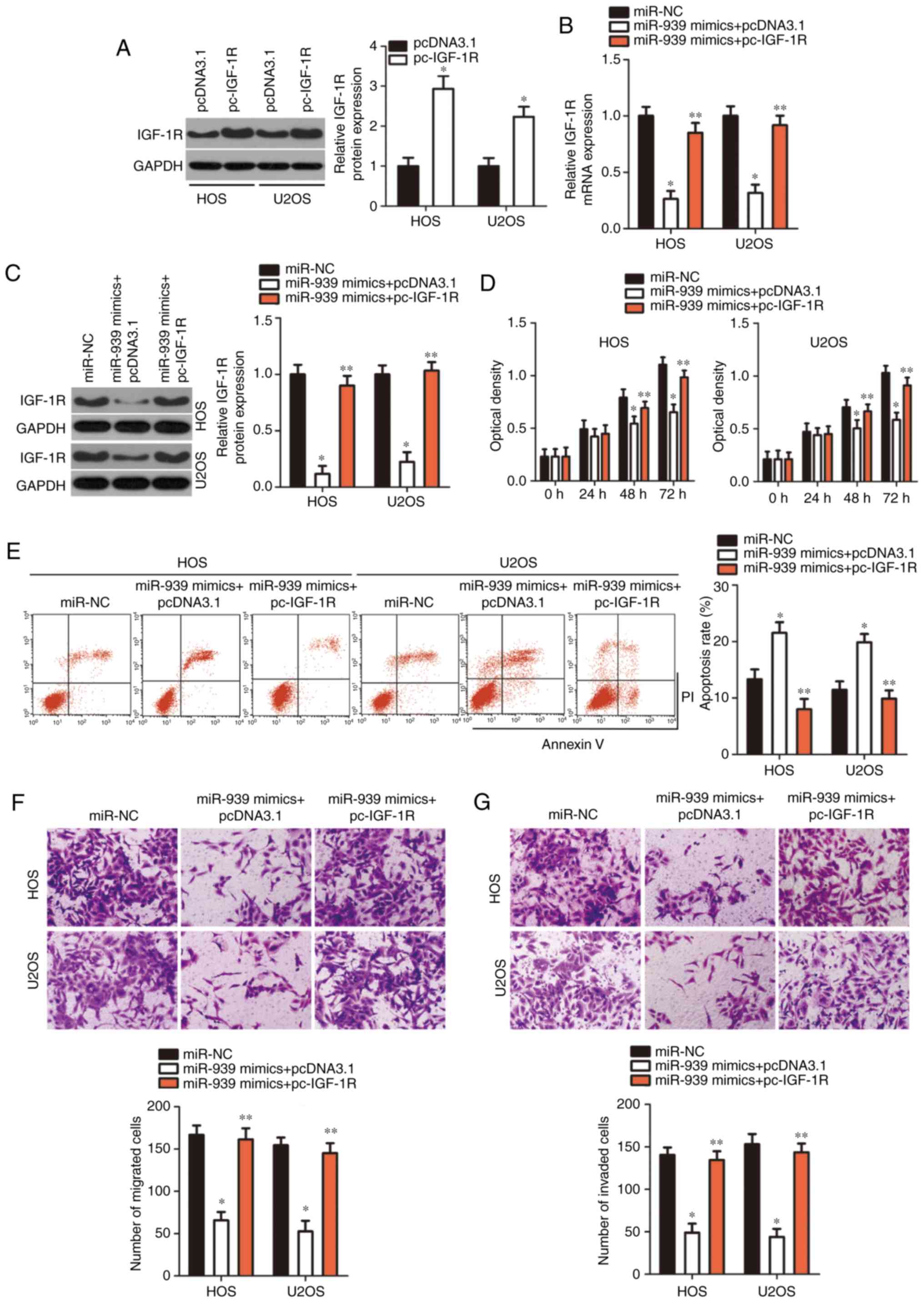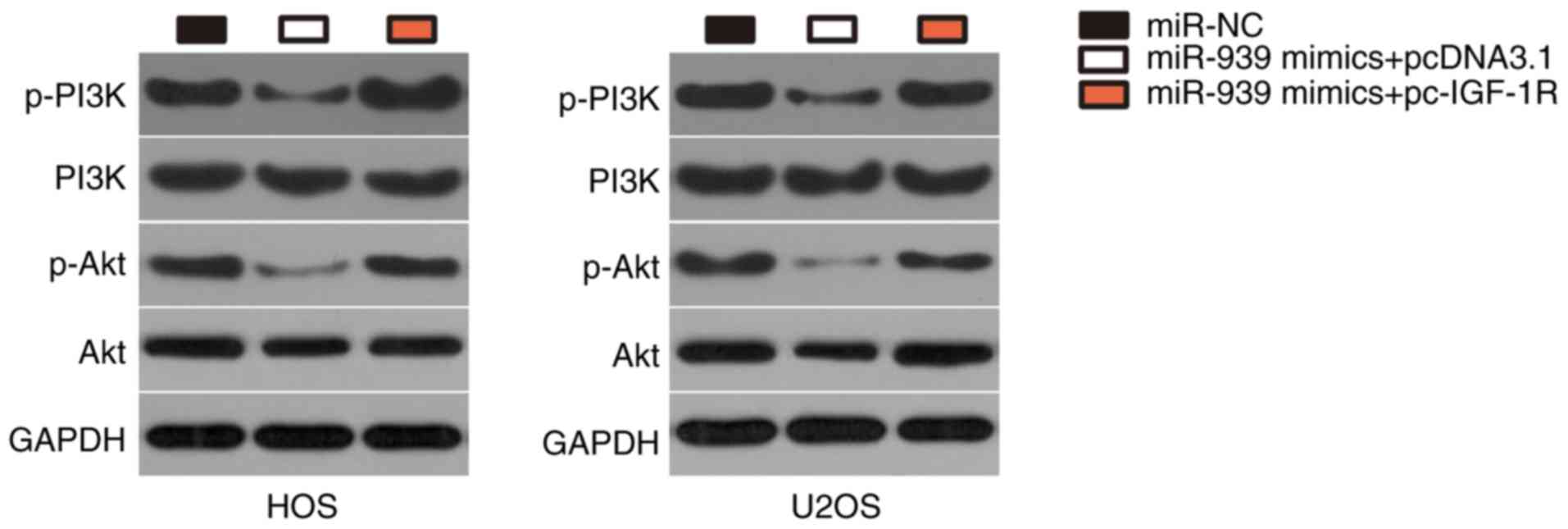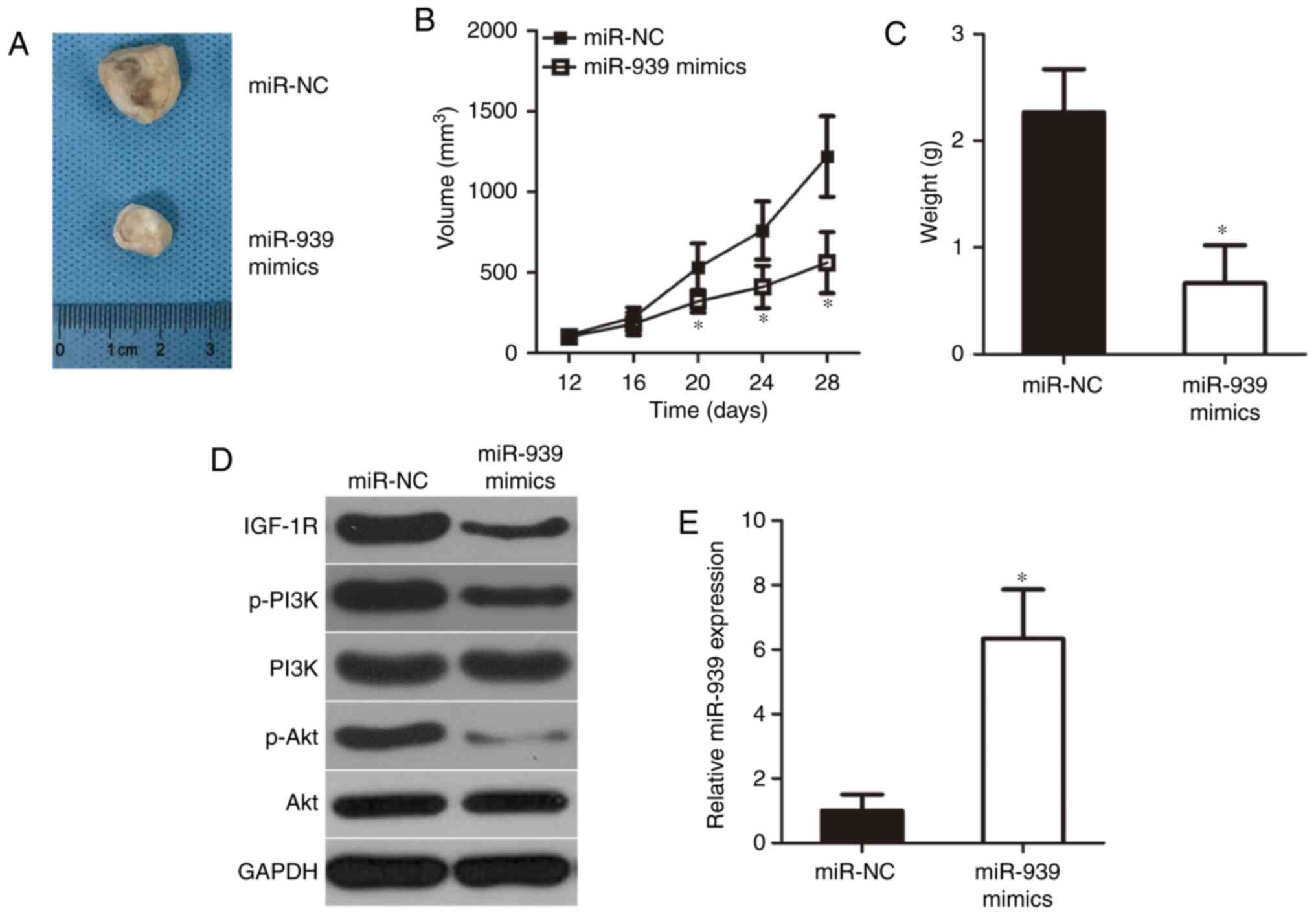|
1
|
Mirabello L, Troisi RJ and Savage SA:
Osteosarcoma incidence and survival rates from 1973 to 2004: Data
from the surveillance, epidemiology, and end results Program.
Cancer. 115:1531–1543. 2009. View Article : Google Scholar : PubMed/NCBI
|
|
2
|
Kager L, Zoubek A, Dominkus M, Lang S,
Bodmer N, Jundt G, Klingebiel T, Jürgens H and Gadner H:
Osteosarcoma in very young children: Experience of the cooperative
osteosarcoma study group. Cancer. 116:5316–5324. 2010. View Article : Google Scholar : PubMed/NCBI
|
|
3
|
Geller DS and Gorlick R: Osteosarcoma: A
review of diagnosis, management, and treatment strategies. Clin Adv
Hematol Oncol. 8:705–718. 2010.
|
|
4
|
Sun L, Li Y, Zhang J, Li H, Li B and Ye Z:
Prognostic value of pathologic fracture in patients with high grade
localized osteo-sarcoma: A systemic review and meta-analysis of
cohort studies. J Orthop Res. 33:131–139. 2015. View Article : Google Scholar
|
|
5
|
Li S, Zhang T, Xu W, Ding J, Yin F, Xu J,
Sun W, Wang H, Sun M, Cai Z and Hua Y: Sarcoma-targeting
peptide-decorated polypeptide nanogel intracellularly delivers
shikonin for upregulated osteosarcoma necroptosis and diminished
pulmonary metastasis. Theranostics. 8:1361–1375. 2018. View Article : Google Scholar : PubMed/NCBI
|
|
6
|
Zhang Y, Wang F, Li M, Yu Z, Qi R, Ding J,
Zhang Z and Chen X: Self-stabilized hyaluronate nanogel for
intracellular codelivery of doxorubicin and cisplatin to
osteosarcoma. Adv Sci (Weinh). 5:pp. 17008212018, View Article : Google Scholar
|
|
7
|
Moore DD and Luu HH: Osteosarcoma. Cancer
Treat Res. 162:65–92. 2014. View Article : Google Scholar : PubMed/NCBI
|
|
8
|
Blattmann C, Oertel S, Schulz-Ertner D,
Rieken S, Haufe S, Ewerbeck V, Unterberg A, Karapanagiotou-Schenkel
I, Combs SE, Nikoghosyan A, et al: Non-randomized therapy trial to
determine the safety and efficacy of heavy ion radiotherapy in
patients with non-resectable osteosarcoma. BMC Cancer. 10:962010.
View Article : Google Scholar : PubMed/NCBI
|
|
9
|
Errani C, Longhi A, Rossi G, Rimondi E,
Biazzo A, Toscano A, Alì N, Ruggieri P, Alberghini M, Picci P, et
al: Palliative therapy for osteosarcoma. Expert Rev Anticancer
Ther. 11:217–227. 2011. View Article : Google Scholar : PubMed/NCBI
|
|
10
|
Shukla GC, Singh J and Barik S: MicroRNAs:
Processing, maturation, target recognition and regulatory
functions. Mol Cell Pharmacol. 3:83–92. 2011.PubMed/NCBI
|
|
11
|
Pasquinelli AE, Hunter S and Bracht J:
MicroRNAs: A developing story. Curr Opin Genet Dev. 15:200–205.
2005. View Article : Google Scholar : PubMed/NCBI
|
|
12
|
Bartel DP: MicroRNAs: Target recognition
and regulatory functions. Cell. 136:215–233. 2009. View Article : Google Scholar : PubMed/NCBI
|
|
13
|
Jia F, Zhang Z and Zhang X:
MicroRNA-338-3p inhibits tumor growth and metastasis in
osteosarcoma cells by targeting RUNX2/CDK4 and inhibition of MAPK
pathway. J Cell Biochem. 120:6420–6430. 2019. View Article : Google Scholar
|
|
14
|
Ma L, Shao Z and Zhao Y: MicroRNA-374a
promotes pancreatic cancer cell proliferation and epithelial to
mesenchymal transition by targeting SRCIN1. Pathol Res Pract.
215:1523822019. View Article : Google Scholar : PubMed/NCBI
|
|
15
|
Zhang Z and Dai DQ: MicroRNA-596 acts as a
tumor suppressor in gastric cancer and is upregulated by promotor
demethylation. World J Gastroenterol. 25:1224–1237. 2019.
View Article : Google Scholar : PubMed/NCBI
|
|
16
|
Tang Z, Fang Y and Du R: MicroRNA-107
induces cell cycle arrests by directly targeting cyclin E1 in
ovarian cancer. Biochem Biophys Res Commun. 512:331–337. 2019.
View Article : Google Scholar : PubMed/NCBI
|
|
17
|
Kim YH, Goh TS, Lee CS, Oh SO, Kim JI,
Jeung SH and Pak K: Prognostic value of microRNAs in osteosarcoma:
A meta-analysis. Oncotarget. 8:8726–8737. 2017.PubMed/NCBI
|
|
18
|
Kushlinskii NE, Fridman MV and Braga EA:
Molecular mechanisms and microRNAs in osteosarcoma pathogenesis.
Biochemistry (Mosc). 81:315–328. 2016. View Article : Google Scholar
|
|
19
|
Ying X, Li-ya Q, Feng Z, Yin W and Ji-hong
L: MiR-939 promotes the proliferation of human ovarian cancer cells
by repressing APC2 expression. Biomed Pharmacother. 71:64–69. 2015.
View Article : Google Scholar : PubMed/NCBI
|
|
20
|
Fornari F, Ferracin M, Trerè D, Milazzo M,
Marinelli S, Galassi M, Venerandi L, Pollutri D, Patrizi C, Borghi
A, et al: Circulating microRNAs, miR-939, miR-595, miR-519d and
miR-494, identify cirrhotic patients with HCC. PLoS One. 10:pp.
e01414482015, View Article : Google Scholar : PubMed/NCBI
|
|
21
|
Zhang Y, Liu X, Li Q and Zhang Y: lncRNA
LINC00460 promoted colorectal cancer cells metastasis via
miR-939-5p sponging. Cancer Manag Res. 11:1779–1789. 2019.
View Article : Google Scholar : PubMed/NCBI
|
|
22
|
Chen Y, Guo Y and Yan W: lncRNA
RP5-916L7.2 correlates with advanced tumor stage, and promotes
cells proliferation while inhibits cells apoptosis through
targeting miR-328 and miR-939 in tongue squamous cell carcinoma.
Clin Biochem. 67:24–32. 2019. View Article : Google Scholar : PubMed/NCBI
|
|
23
|
Zhang JX, Xu Y, Gao Y, Chen C, Zheng ZS,
Yun M, Weng HW, Xie D and Ye S: Decreased expression of miR-939
contributes to chemoresistance and metastasis of gastric cancer via
dysregulation of SLC34A2 and Raf/MEK/ERK pathway. Mol Cancer.
16:182017. View Article : Google Scholar : PubMed/NCBI
|
|
24
|
Livak KJ and Schmittgen TD: Analysis of
relative gene expression data using real-time quantitative PCR and
the 2(-Delta Delta C(T)) method. Methods. 25:402–408. 2001.
View Article : Google Scholar
|
|
25
|
Agarwal V, Bell GW, Nam JW and Bartel DP:
Predicting effective microRNA target sites in mammalian mRNAs.
Elife. 4:2015. View Article : Google Scholar
|
|
26
|
Liu W and Wang X: Prediction of functional
microRNA targets by integrative modeling of microRNA binding and
target expression data. Genome Biol. 20:182019. View Article : Google Scholar : PubMed/NCBI
|
|
27
|
Wang YH, Han XD, Qiu Y, Xiong J, Yu Y,
Wang B, Zhu ZZ, Qian BP, Chen YX, Wang SF, et al: Increased
expression of insulin-like growth factor-1 receptor is correlated
with tumor metastasis and prognosis in patients with osteosarcoma.
J Surg Oncol. 105:235–243. 2012. View Article : Google Scholar
|
|
28
|
Li YS, Liu Q, He HB and Luo W: The
possible role of insulin-like growth factor-1 in osteosarcoma. Curr
Prob Cancer. 43:228–235. 2019. View Article : Google Scholar
|
|
29
|
Wang YH, Wang ZX, Qiu Y, Xiong J, Chen YX,
Miao DS and De W: Lentivirus-mediated RNAi knockdown of
insulin-like growth factor-1 receptor inhibits growth, reduces
invasion, and enhances radiosensitivity in human osteosarcoma
cells. Mol Cell Biochem. 327:257–266. 2009. View Article : Google Scholar : PubMed/NCBI
|
|
30
|
Wang YH, Xiong J, Wang SF, Yu Y, Wang B,
Chen YX, Shi HF and Qiu Y: Lentivirus-mediated shRNA targeting
insulin-like growth factor-1 receptor (IGF-1R) enhances
chemosensitivity of osteosarcoma cells in vitro and in vivo. Mol
Cell Biochem. 341:225–233. 2010. View Article : Google Scholar : PubMed/NCBI
|
|
31
|
Chen L, Jiang X, Chen H, Han Q, Liu C and
Sun M: MicroRNA-628 inhibits the proliferation of acute myeloid
leukemia cells by directly targeting IGF-1R. OncoTargets Ther.
12:907–919. 2019. View Article : Google Scholar
|
|
32
|
Jiang W, Meng L, Xu G, Lv C, Wang H, Tian
H, Chen R, Jiao B, Wang B and Huang C: Wentilactone A induces cell
apoptosis by targeting AKR1C1 gene via the IGF-1R/IRS1/PI3K/AKT/
Nrf2/FLIP/Caspase-3 signaling pathway in small cell lung cancer.
Oncol Lett. 16:6445–6457. 2018.PubMed/NCBI
|
|
33
|
Huang YK, Kang WM, Ma ZQ, Liu YQ, Zhou L
and Yu JC: NUCKS1 promotes gastric cancer cell aggressiveness by
upregulating IGF-1R and subsequently activating the PI3K/Akt/mTOR
signaling pathway. Carcinogenesis. 40:370–379. 2019. View Article : Google Scholar
|
|
34
|
Zhang J, Yan YG, Wang C, Zhang SJ, Yu XH
and Wang WJ: MicroRNAs in osteosarcoma. Clin Chim Acta. 444:9–17.
2015. View Article : Google Scholar : PubMed/NCBI
|
|
35
|
Heng L, Jia Z, Bai J, Zhang K, Zhu Y, Ma
J, Zhang J and Duan H: Molecular characterization of metastatic
osteosar-coma: Differentially expressed genes, transcription
factors and microRNAs. Mol Med Rep. 15:2829–2836. 2017. View Article : Google Scholar : PubMed/NCBI
|
|
36
|
Gurbuz N and Ozpolat B: MicroRNA-based
targeted therapeutics in pancreatic cancer. Anticancer Res.
39:529–532. 2019. View Article : Google Scholar : PubMed/NCBI
|
|
37
|
Henry JC, Azevedo-Pouly AC and Schmittgen
TD: MicroRNA replacement therapy for cancer. Pharm Res.
28:3030–3042. 2011. View Article : Google Scholar : PubMed/NCBI
|















